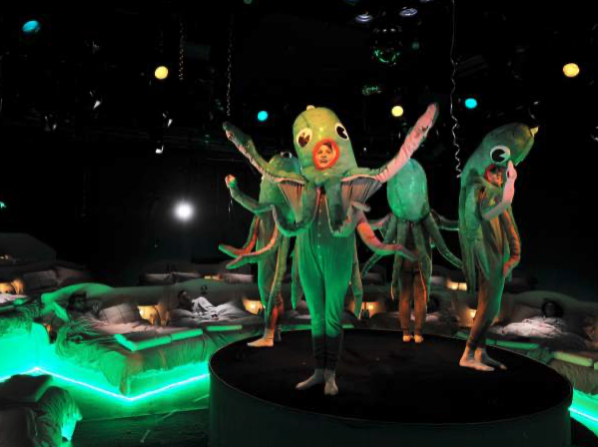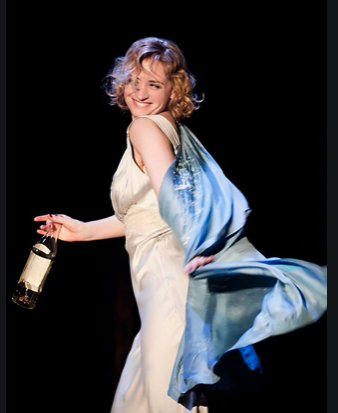I am, I freely admit, a theatrical obsessive: pre-lockdown, I lived, breathed and (yes, sometimes) slept (in the) theatre. No, sleeping on the job is not to be encouraged — you’d be fired in other workplaces, so journalism should be no exception; but if and when I’ve paid for my ticket, that’s a different story, and I can choose how to spend my time in the seat I’ve paid to occupy. Though sleep is invariably not a choice, but an involuntary reaction to boredom or fatigue.
But not all of my fellow critics share my obsession. Quentin Letts, asked what he’s most looking forward to post-lockdown, in the Sunday Times Culture supplement yesterday, replied:
“Singing hymns. I long for my Sunday morning blast of Hills of the North or To Be a Pilgrim: good for the respiratory system, vital for the soul. After the service, we all have buckets of sherry.”
That’s Quentin’s priorities in a nutshell, and they’re not theatrical (though there is a performative element). But it could be said that a theatre critic who is not completely obsessed by the theatre has a better sense of perspective of what the public taste might be, unless their own taste is even more rarefied, that is; for which Quentin also offered an insight in yesterday’s paper.
Asked how he spent his lockdown time away from the theatre, he replied,
“My late Uncle John encouraged me to read all of Anthony Trollope’s novels, and lockdown has allowed me to knock off a few more of the 47. The American Senator gives us Elias Gotobed, an old windbag who visits England and is aghast at the romantic and social steeplechase of the fox-hunting shires. It’s an 1875 version of Jilly Cooper.”
Now we know what Quentin’s preferred bedtime reading is, that’s also helpful when working out what keeps him awake in the theatre (though back in the day, when he used to be theatre critic of the Daily Mail, he once itemised exactly when he grabbed a few winks: reviewing a production of The Hour We Knew Nothing of Each Other at the National in 2008, he mentioned the appearance of a circus band – and added, “woke me up at 7.51pm – thank you”.
Sometimes, of course, charting your slumbers (or not) is part of the experience of the show itself. In 2011, Duckie produced an experiential event at the Barbican called Lullabye [pictured below], which invited us to bed down, literally, in the Pit for the night, which had been turned into a kind of dorm, in which the show was designed to lull you to a gentle sleep.

But as Charles Spencer, then theatre critic of the Daily Telegraph, reported in his review, it didn’t go very smoothly for him: as he reported in his review,
“The producer had told me that if I wasn’t lulled into sleep during this second half of the show before they brought proceedings to an end at 1am, Duckie would have failed in its task. I stayed awake.
At about 2am, I drifted off but that was when a dire night became downright humiliating. The woman lying in the bed next to me woke me up and told me I was snoring. I apologised, went back to sleep and she woke me up and told me I was snoring again. I said the company had provided earplugs and perhaps they would help. She said she was wearing the earplugs and was still being kept awake by my snores. I felt guilty and exhausted and drifted off and she woke me a third time. I tried to stay awake but eventually fell back into swinish slumber.”
Finally, when the morning arrived, he woke up again, and was able to report on the rest of the event:
“At 7.30 am the lights came on and some cute little baby chickens were chirping in the middle of the room. Sweet and fluffy though they were, they failed to cheer me up.
I went out onto the street in my dressing gown and had a fag. The City workers passing the stage door looked at me with deep suspicion. I then gobbled down a croissant and a cup of coffee, dressed and got the hell out of the place. I’ve spent worse nights – but not many. I’m sorry about the snores, though.”
But if sleeping is difficult when you’re actually being invited to do so, it’s even worse for a critic when they’re not supposed to be asleep. Back in 2011, Tim Walker — then the Telegraph’s Mandrake columnist — reported how one critic was taken to task by actor James McAvoy for sleeping through a production at the Old Vic of Terence Rattigan’s Cause Célèbre, starring McAvoy’s then-wife Anne-Marie Duff [pictured below], admonishing the critic concerned that “he could not see how he could possibly review a production that he would have been able to have glimpsed, at best, only fleetingly.”

Mandrake quotes another theatregoer reporting:
“There was a right rumpus. McAvoy was absolutely furious. I had noticed earlier that the gentleman sitting beside the snorer had been repeatedly elbowing him, but, sadly, to no avail. The noise was deafening. He was clearly in a very deep sleep indeed, and, to be fair to the play, he had nodded off before it had even begun.”
In a column for The Guardian at the time about this event, Laura Barnett argued:
“I can imagine that, for actors, looking down on a sea of sleeping faces could be more than a little disconcerting – but I’d argue that the very act of falling asleep could be a useful critical barometer. Theatre should entertain, and ideally keep audiences on the edge of their seats….
There are, anyway, much worse things you could do to show your lack of appreciation. You could throw rotten vegetables at the stage (luckily for actors this tradition is almost nonexistent these days; in Shakespeare’s time it was de rigueur)….
Or, of course, you could just get up and leave. Doing this in the middle of a performance is the height of rudeness – other members of the audience might be enjoying it, after all, and however much you hate the show its yawn-inducing dullness may well not be the actors’ fault. The alternative is to leave during the interval – something I have, I admit, done twice. On both occasions I felt bad about it, but the shows were really so awful that I decided my time was better spent elsewhere.
But as I wrote in a column last year,
“Most nights at the theatre I find people asleep, including by critics on press nights. These aren’t always the old-timers you’d expect: one of the people I’ve seen slumbering more than once was one of the younger critics (young being, of course, a relative concept here), and when the Daily Mail’s Ephraim Hardcastle ran an item naming him, he proudly even tweeted a link to it. Perhaps shamelessness is the best strategy when you succumb to slumber in the stalls.”
I have, you’ll notice, not named either the critic involved in the Old Vic story or the one above. But in the latter case, he named himself.
